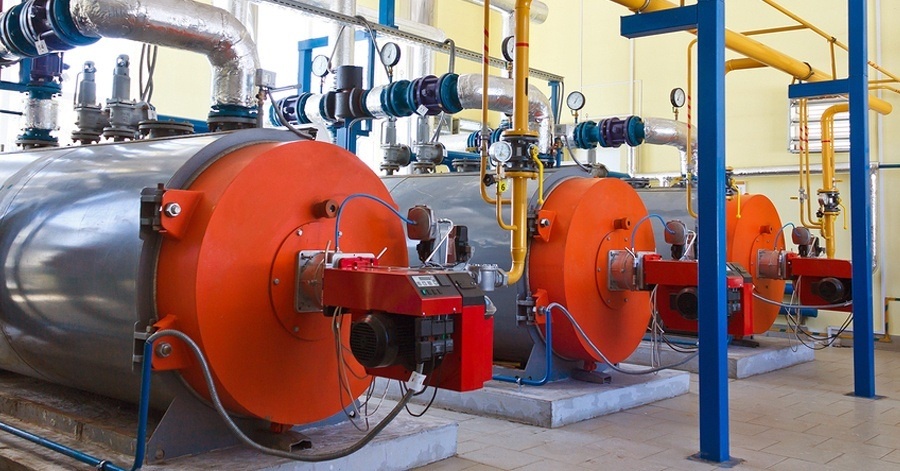Almost every business, if not all, utilises and relies on a piece of machinery for work production. If you look closely at the items and services around you, you’ll find that behind them are various machinery and equipment. Without machinery and equipment, the final result of the things and services around us would be completely different. One of those pieces of machinery is the steam boiler.
Steam boilers are massive, powerful, reliable, and efficient machinery that most industries utilise. In fact, they’re one of the pieces of machinery that plays a critical role in businesses, yet most of us don’t realise and are unaware of their efficiency. Sadly, many people only know steam boilers as steam-generating equipment.
But the thing is, there’s more to boilers than what most people know about. In this post, let’s learn some fun facts about steam boilers and their industry roles.
1 - Steam boilers have various types for specific uses and needs
One of the many facts about boilers is that they come in different kinds. But among the many types, there are two boilers that most industries use and invest in because of their features. They are the fire tube boiler and water tube boiler.
Other types of steam boilers are electric steam boilers, gas boilers, oil boilers, coal boilers, and more. Various subtypes also fall under fire tube and water tube boilers to cater to specific industry needs by specialising in a particular feature.
2 - They produce energy and steam by water heating
I mentioned earlier that most people know a steam boiler as a steam-generating machine. But many forget that water is a critical factor that produces steam. And yes, steam boilers rely on water to generate steam, heat temperature, and pressure a specific work task needs.
Every boiler has tubes and valves inside it where water and gasses pass through, depending on its type. Here’s an example. In fire tube boilers, hot gasses pass through tubes–and water surrounds them. While in water tube boilers, the water passes through the tubes, while hot gasses surround them.
3 - They come in different shapes and sizes
Another fact about boilers is that they come in different shapes and sizes. Traditionally, water tube boilers are bigger than fire tube ones. However, they could also be massive and occupy a specific floor area. But that would vary on the boiler’s size, features, and uses.
Even though water tube boilers are massive, they’re also available in smaller sizes. And since modern technological advancements have come far, smaller boilers can provide sufficient features and work capacity that larger boilers can.
4 - They require low maintenance
One of the best points of steam boilers is they require low maintenance. That’s one of the reasons you can use boilers in almost any industry. From production to fashion industries, boilers are reliable and can provide a helping hand to businesses.
Despite their size, features, and efficiency, boilers are easy to maintain. Yes, their start-up and shutdown may be complex for beginners, but once you get the hang of it, you’ll see how easy it is to maintain a boiler–making them a reliable and worthy business investment.
5 - Steam boilers today are more energy-efficient and use green energy
Since steam boilers generate steam and use hot flue gases to produce them, people think they’re hazardous to the environment. It’s true, though, that older boiler models have high risks of emitting toxins and gases. But thanks to modern advancements, modern boilers are now more energy-efficient.
Most boiler manufacturers today take pride in the efficiency of their boiler quality. They claim that the sealing of their boilers guarantees that no vapours or fumes can escape the machinery. Hence, promoting green energy use because it promotes less heat wasting.
6 - Steam boilers play a critical role in brewery and distillery businesses
Do you and your family and friends love drinking alcoholic beverages when reuniting? If yes, are you aware that steam boilers play a massive role in their production? Without steam boilers, the production and taste of alcoholic beverages will never be the same.
Some of their roles in brewery and distillery businesses are sterilisation and sanitation. Heat is an essential factor in beer and liquor production. Why? Because many ingredients require specific heat temperatures to produce the taste and texture that alcoholic beverages have. On top of that, they use steam boilers to ferment other alcoholic ingredients as well.
7 - Boilers play a role in the fashion industry, too.
Lastly, steam boilers play a massive role in the fashion industry. According to a statistic, in 2022, the fashion industry was valued at $1.7 trillion. That means millions of businesses rely on fashion for their income.
If you’re unfamiliar with boilers, it’s easy to assume they’re only essential in chemical production in factories, healthcare, and leisure industries. However, they also play a massive role in textile dyeing processes. Textile is the cloth businesses use to create and design clothing. Without them, there would be no clothing to make, sell, and wear.
Boilers have more uses and incredible features than these seven points.
If you know someone unfamiliar with boilers or want to learn more about them, you can help them by sharing these seven fun facts. However, there is more to boilers than these points I shared. Again, steam boilers provide more work processes that are technical and that industries rely on daily. If you take the time to get to know them, you’ll see how they contribute to almost every item and service we utilise daily.
About the author:
Bianca Banda is a writer for Trilogy Boilers Australia, a veteran specialising in boiler and burner installations, servicing, engineering, and industrial gas plumbing.


No comments yet